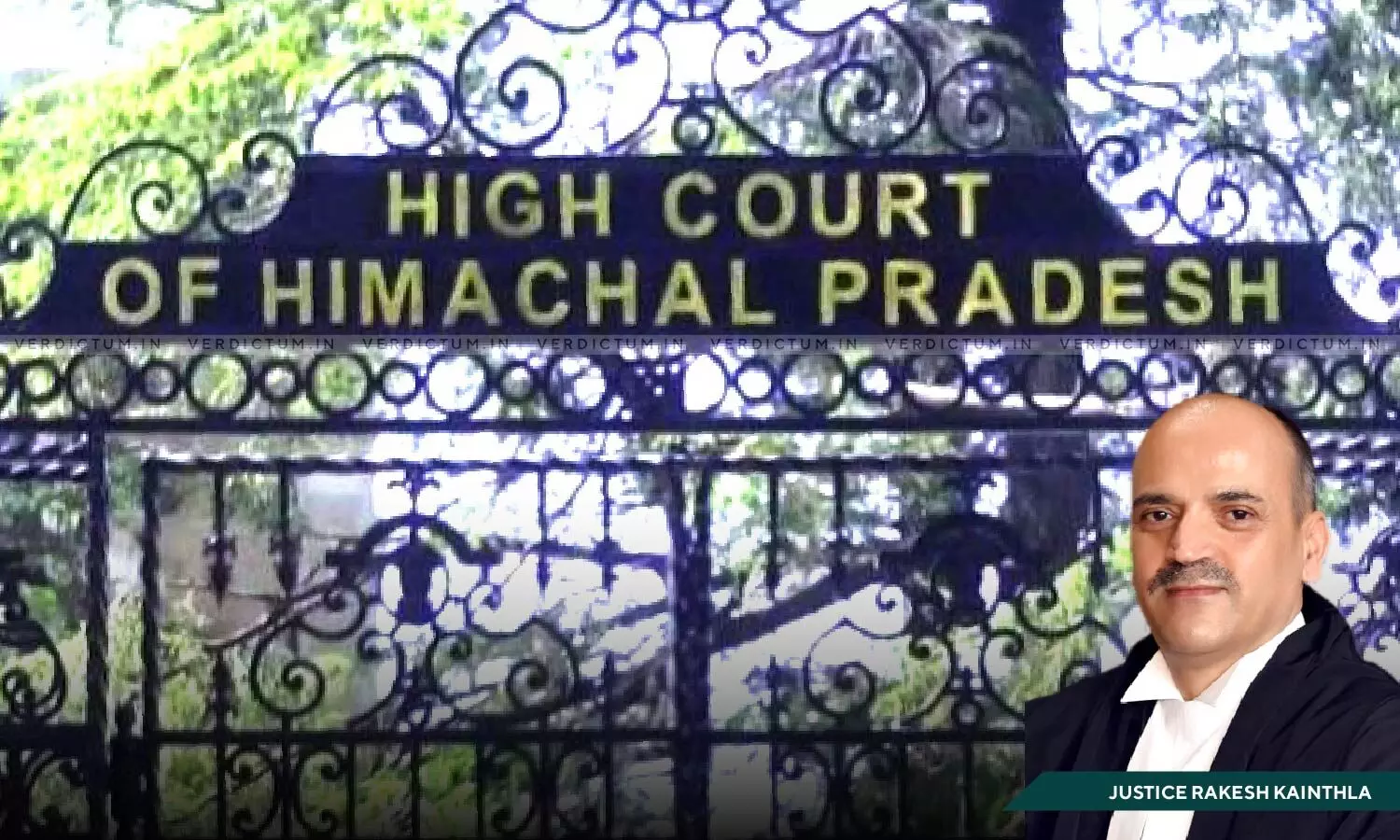
Instantaneous & Irrevocable Talaq Punishable; Hasan & Ahsan Forms Are Not Illegal: Himachal Pradesh High Court
 |
|The Himachal Pradesh High Court has highlighted that only a form of talaq (divorce) that results in an instantaneous and irrevocable divorce pronounced by a Muslim husband has been made punishable under the law. The forms of talaq which require a waiting period are still legal under the Muslim Women (Protection of Rights on Marriage) Act.
In that context, the Bench of Justice Rakesh Kainthla observed that, "Only the Talaq-e-Biddat or any other similar form of Talaq having the effect of instantaneous and irrevocable divorce pronounced by a Muslim husband has been made punishable but the pronouncement of Talaqe-Sunat either by Hasan or Ahsan form has not been made illegal...In the present case, the letter written by the petitioner, which is the subject matter of the FIR prima facie does not fall within the definition of Talaq-e-Biddat and is not punishable under Section 3 of the Act."
The petitioner sought to quash an filed under Section 4 of the Muslim Women (Protection of Rights on Marriage) Act, 2019. The petitioner argued that the FIR was based on a false allegation of "Triple Talaq" (Talaq-e-Biddat), which he claimed was not the method of divorce he used. Instead, the petitioner stated that he followed Talaq-e-Hasan, a form of divorce recognized under Islamic law, which he argued is not prohibited by the Act.
The High Court, after reviewing the case, held that it could not quash the FIR at this stage. The Court emphasized that it is not within its jurisdiction to conduct a mini-trial or assess the evidence at this stage of the proceedings.
The Court further stated that the investigation had already been completed, and a charge sheet had been filed. It referred to the Supreme Court's ruling in Iqbal v. State of U.P., which held that once a charge sheet is filed, it is the trial court's role to examine the materials and determine the merits of the case. The Court concluded that, "It is not possible to quash the FIR in the exercise of the extraordinary jurisdiction of this Court."
Therefore, the petition to quash the FIR was dismissed.
Cause Title: XXX vs State of HP & Anr. (Neutral Citation: 2024:HHC:6582)
Click here to read/download the Judgment